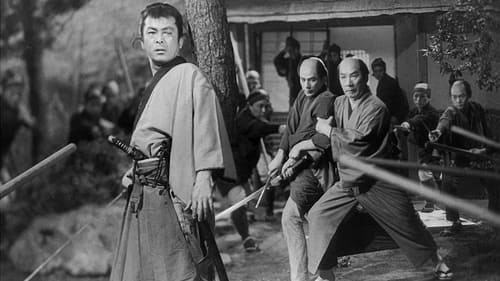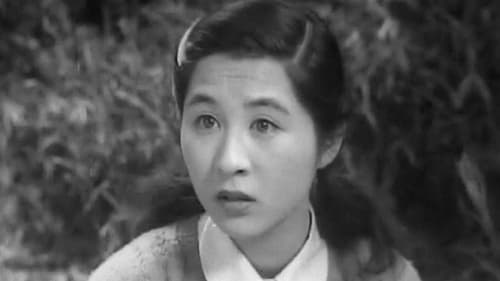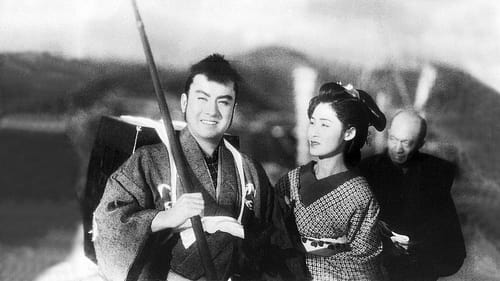
Scissors Jaguar (human form)
During a battle against Destron's forces, Shiro Kazami helps a priest who has been attacked by the evil organization's kaijin Hasami-Jaguar. Little does he know that the church where the priest resides is a front for a Destron hideout. After finding out the organization's latest motive, Kamen Rider V3, along with the Double Riders, must stop Destron from detonating a nuclear bomb in Tokyo.

Laughter is brought about by a teacher-husband and student-wife couple.

Japanese drama.

A semi-documentary story about the vicissitudes in the life of an elderly fisherman.

Hosoi
A drummer falls for a pawnbroker's daughter.

In 1905, Japan was seriously threatened in the Russo-Japanese War. Japan determined a decisive attack on Russia to end the war. A reconnaissance troop was organized to penetrate into the supreme headquarter of Russia in Tieling Mountain of China to find out the enemy's situation...

Yoshitaro Yanagawa
A bus making its precarious way across a winding mountain road picks up some unwelcome passengers.

Kansaku
Based on the novel by Kojin Shimomura. Story of a young boy and his adventures in the country. His idyllic life is shattered by the illness and death of his mother.

In this movie, Sashichi tries to catch a serial killer who kills his victims with shurikens.

Karoku
An early fantasy film starring Tomisaburô Wakayama.

Based on the story of Shimizu no Jirocho.

'Madre' es la historia de una madre pobre y trabajadora, con un marido enfermo, que se sacrifica para mantener a su familia en los suburbios de Tokio. La película define "Shomin Geki", un género cinematográfico japonés que presenta una representación realista de la clase baja económica, contada con elementos de comedia ligera y melodrama. Esta es la obra más conocida del director Mikio Naruse, aclamado por los historiadores de cine japoneses como un igual a Kurosawa, Ozu y Mizoguchi, pero subestimado en Occidente.

After mastering swordsmanship at the dojo of Chiba Shusaku, and unable to serve a clan due to his illness, Hirate Miki becomes a ronin who winds up as bodyguard to Shigezo of Sasagawa leading up to an epic battle.

Tanuma Kandayuu is a high class samurai of the house of Nabeshima. He finds a lavish board of Go (a Chinese Board game) at Kinbei's store. He recommend Kinbei to offer it to his lord. Kinbei hesitates at first, since he knows the board has a mysterious legend surrounding it; it's believed that for every game played on the board, one death is required.

A sixteen-year-old who had been living on her own since her mother died, frequently gets in trouble with the police. She gets sent to an "institute" for young girls in the countryside. There the residents grow their own food, cook and clean for themselves, and are taught language, music, and sewing. While there the young girl slowly begins to form friendships and come out of her shell.

Takeemon
This epic depicts the battle between Uesugi Kenshin and Takeda Shingen. The focus of the story is the struggle by the unit leader in charge of the main supply wagons and the supply troops to transport materiel to the Uesugi army. To this are added episodes involving an itinerant woman.

The story is based on the serial novel by Tsunoda Kikuo.

The story is based on the serial novel by Tsunoda Kikuo.

The film tells about the life of the former vassal of the Ako clan - Fuwa Katsuemon Masatane.

A man attacks the shogun, but does not succeed in his assassination attempt. He flees to the mountains and hides in a shed. There he finds an old man and a girl. The latter is the daughter of Shogun's former wife and also has revenge on her mind. The former is also connected to the castle. Separately a girl lives at the shogun's castle and believes in god.

Japanese film.

dir: Teinosuke Kinugasa

Guest at public bath
Two cowardly palanquin carriers know the culprit of a murder but are too scared to report it to the police. In the mean time, an innocent man is arrested as the murderer and chaos ensues. Pre-war jidaigeki film.

Muku
An onnagata (female impersonator) of a Kabuki troupe avenges his parents' deaths. Remade in 1963 as Yukinojô Henge.

Period film from 1934.

A mournful masterpiece by Kinugasa Teinosuke


servant
This 1932 adaptation is the earliest sound version of the ever-popular and much-filmed Chushingura story of the loyal 47 retainers who avenged their feudal lord after he was obliged to commit hara-kiri due to the machinations of a villainous courtier. As the first sound version of the classic narrative, the film was something of an event, and employed a stellar cast, who give a roster of memorable performances. Director Teinosuke Kinugasa was primarily a specialist in jidai-geki (period films), such as the internationally celebrated Gate of Hell (Jigokumon, 1953), and although he is now most famous as the maker of the avant-garde silent films A Page of Madness (Kurutta ichipeji, 1926) and Crossroads (Jujiro, 1928), Chushingura is in fact more typical of his output than those experimental works. The film ranked third in that year’s Kinema Junpo critics’ poll, and Joseph Anderson and Donald Richie noted that 'not only the sound but the quick cutting was admired by many critics.













